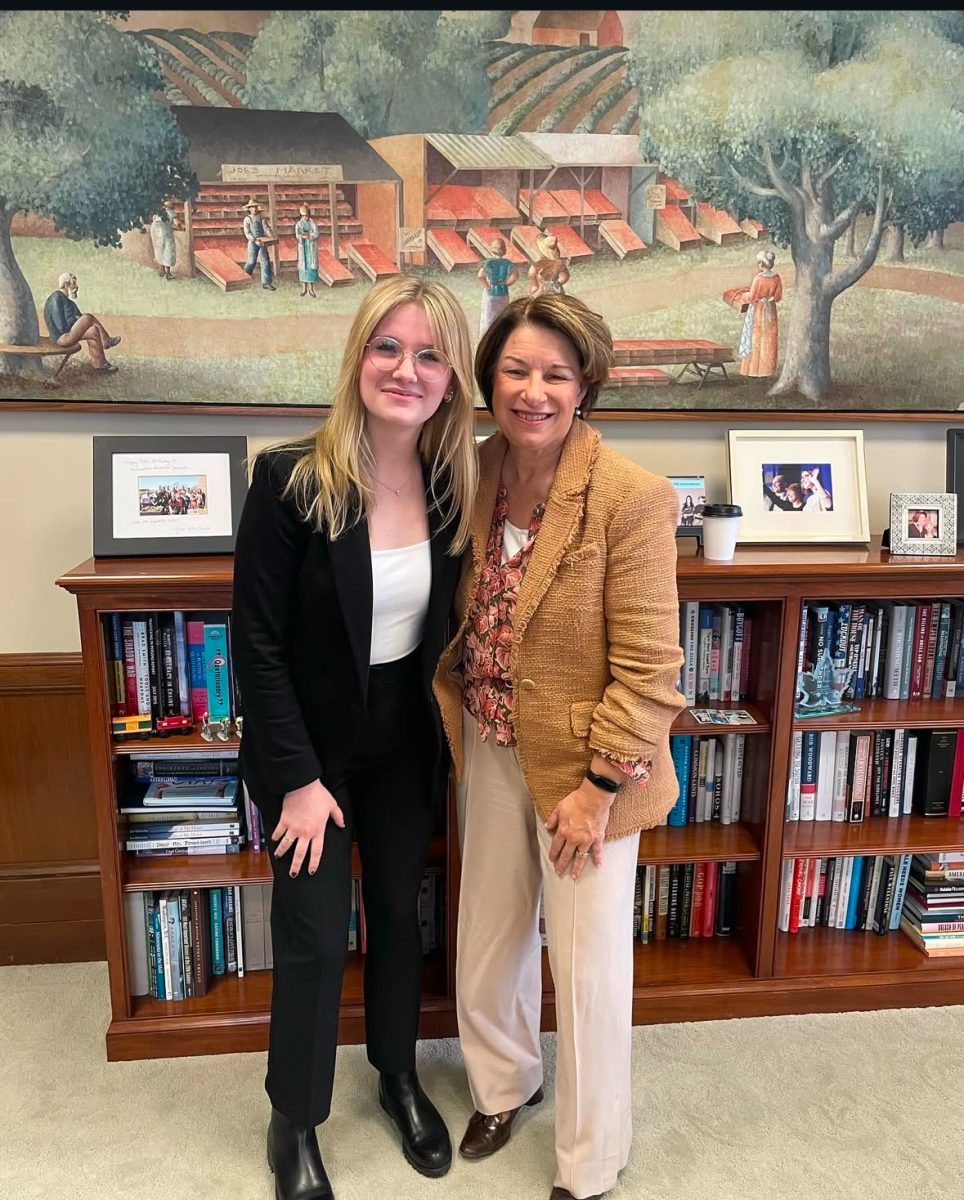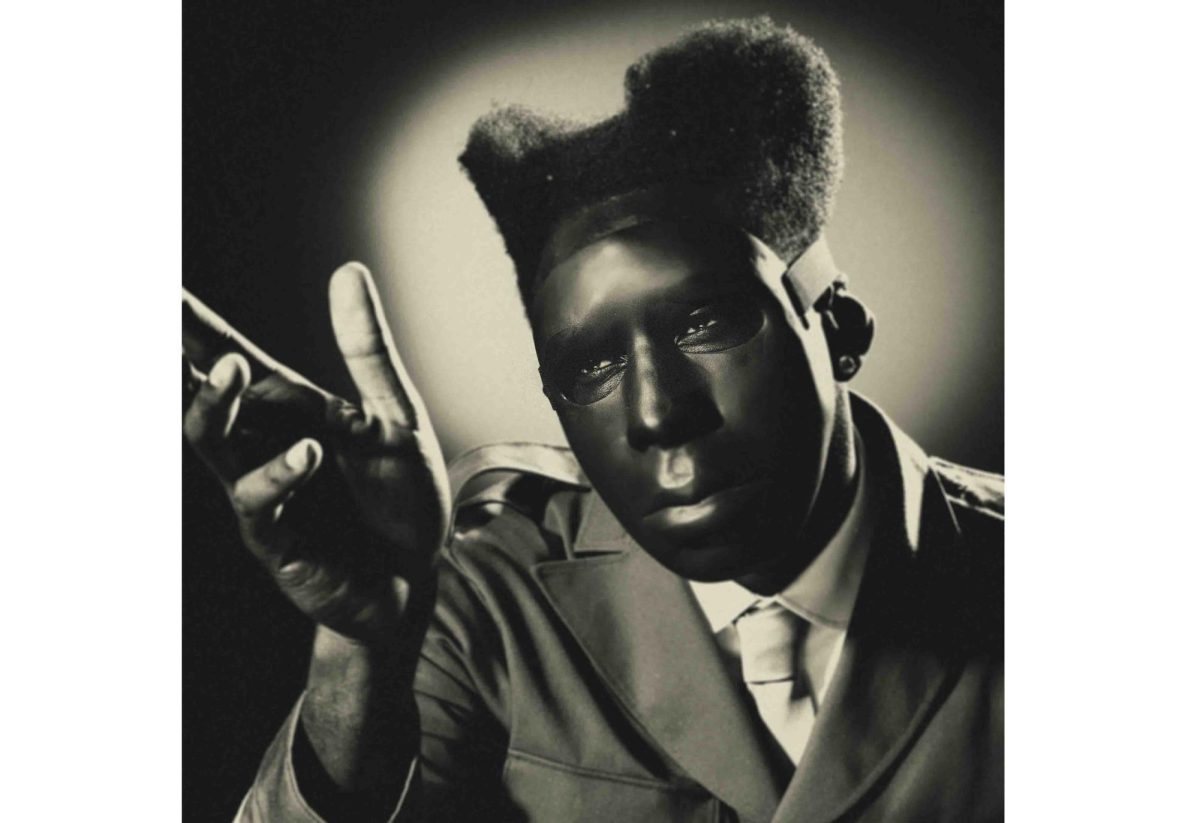Verdict: 4.5/5
On Oct. 28, Tyler the Creator released his seventh album, Chromakopia. The album quickly became one of my favorites of the year. It unfolds as a powerful exploration of the mental health and identity of Tyler. Shifting away from the bold confidence of his previous projects, Chromakopia finds Tyler grappling with maturity, parenthood and the wisdom his mother imparted to him.
The album is packed with genre-bending sounds, blending jazz, soul, hip-hop and electronic influences that speak to Tyler’s incredible evolution as an artist. Each combination of genres mixed beautifully with each lyric to tell a unique story of his experience in life. He arranges and produces each track wonderfully, creating a cinematic experience from the very strong opener, “St. Chroma,” to the slower, closing track, “ I Hope You Find Your Way Home.” He weaves together sounds that echo funk and jazz, pairing nostalgic samples with modern production in tracks like “Darling, I.” This song stands out, as it contrasts a warm melody with lyrics questioning Tyler’s commitment to being an artist, something that not a lot of rappers do in recent times.
Chromakopia serves as a testament to Tyler’s growing abilities. He does a great job with his guest features, particularly Daniel Caesar and Schoolboy Q, who really impressed me with their contribution to the album’s richness. Other additions highlighted how Tyler can bring together different styles of artists. In the track “Sticky,” he manages to blend GloRilla, Sexyy Red and Lil Wayne into one of the most memorable songs of the album. He impressed me with his ability to blend his distinctive sound with diverse voices that complement rather than compete with his own.
Lyrically, Chromakopia shines as one of Tyler’s most personal and skillful projects to date. Songs like “Like Him” really moved me with their deep dive into his feelings around family, touching on the complex relationship with his absent father, a common topic in his songs but one that he truly has new layers. It seems like he focused on giving the album a more creative exploration of familiar themes by adding greater emotional stakes. The interludes, featuring his mother Bonita Smith’s voice, anchor the album, adding warmth and gravity. Her advice, laced throughout the album, serves as a reminder of the passing time and Tyler’s evolving understanding of what family and legacy means to him.
Chromakopia explores contrasting moods, masterfully balancing moments of bold energy with his mother’s softer and more reflective interludes. Tracks like “Rah Tah Tah” echo his previous album’s high-energy style while other tracks introduce a blending of passion and calmness. The strict contrast throughout the album was incredible to listen to. The back and forth created an interesting sense of tension and unpredictability that followed throughout the album very well. Although Tyler is known for his bold confidence, this album begins to question that attribute. There is a sense that he is stepping away from his persona to confront a more nuanced self-image, one that grapples with imperfections and self-reflection. These are the moments that give Chromakopia an emotional appeal and bring together the album in a positive way. It feels like the listener is on a musical journey of Tyler’s ongoing evolution, embracing the uncertainties of adulthood and the wisdom that accompanies it.
Chromakopia was met with high critical praise, particularly for its fearless experimentation and deeply personal narrative. As a longtime fan of his work, I think the album beautifully creates a window into the fulfilling evolution of Tyler’s artistic journey. And for any newcomers, they will find themselves quickly drawn to its engaging production and raw honesty. Bold yet vulnerable, his approach creates a reflective, genre-mixing body of work that is as much about searching for answers as it is about redefining himself in the process. The album is easily one of his best, once again proving his spot as one of the most prolific artists of our era.














![[DEBATES] Prestigious colleges: value or hype?](https://www.mvviewer.org/wp-content/uploads/2024/12/buildings-1200x654.png)































![[OPINION] The dark origins of TikTok's looksmaxxing trend](https://www.mvviewer.org/wp-content/uploads/2024/02/Copy-of-Copy-of-Untitled-Design-1200x675.png)










